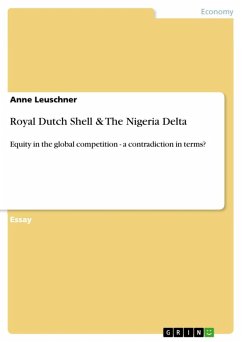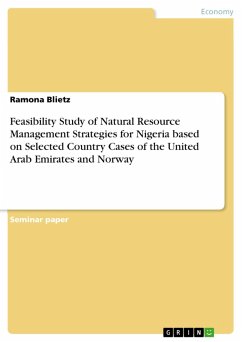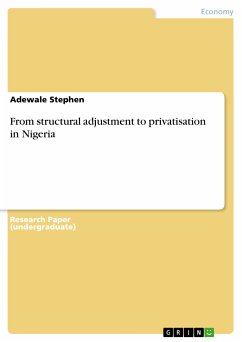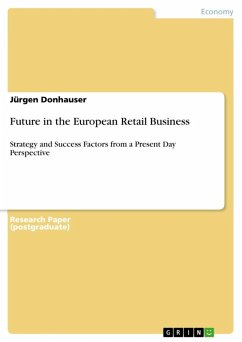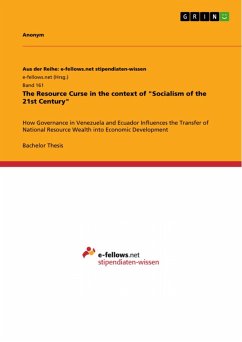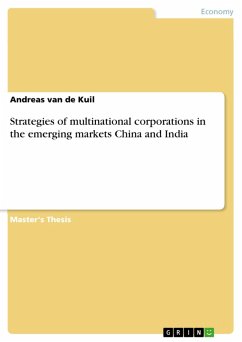Essay from the year 2010 in the subject Business economics - Economic Policy, grade: A, University of California, Berkeley , language: English, abstract: The question of the compatibility of the world¿s economic efficiency and the distribution of material and social goods can - in times of globalization - no longer be discussed in a national economic framework. A quarter of the world's population produces and distributes four-fifths of the world production of goods and the rest of the world, three quarters, must get along with what remains. What doesn't seem to work very well: every year more than 10 million children die from malnutrition and disease, over a billion people living in extreme poverty. Is the wealth of the rich directly related to the poverty of the poor? Is there a connection between the economic efficiency of the global economy and the disaster of social distribution? In fact this connection can today no longer be denied. Even the World Bank concedes that unfavorable factors have led some countries to an uninterrupted downward trajectory. One of those countries is without doupt Nigeria! Especially the Niger Delta has become a hot topic among human rights activists, environementalists and fair trade supporters around the world. For some of them, the recent crises is caused by the Western ignorance and its willingness to degrade the popultion of the developing world to fill its own perceived energy needs. However causes and accountability for this ongoing environmental disaster are not conclusively . This paper will identify the extend to which oil companies profit of the oil resources coming from the Niger Delta while the local population still suffers from poverty. By doing that its of a great importance to identify and analyse both parties - the local nigerian people on the one hand and the international oil companies on the other hand - in order to confront their arguments. Of particular interest is the objective of Royal Dutch Shell as a multinational petroleum company dealing with the enormous pressure of the global competition and the blame to act unsustainable while the end of "hunger" for energy amoung the industrialized world is not in sight.
Dieser Download kann aus rechtlichen Gründen nur mit Rechnungsadresse in A, B, BG, CY, CZ, D, DK, EW, E, FIN, F, GR, HR, H, IRL, I, LT, L, LR, M, NL, PL, P, R, S, SLO, SK ausgeliefert werden.

